Probably only after catastrophe will have destroyed modernity, with its global myth and ideology, will an alternative view of the world assert itself by virtue of necessity. No one will have the foresight or courage to implement it before chaos breaks loose.
It is up to us, therefore, who are living in the interregnum – to use Giorgio Locchi’s expression – to develop the idea of the world for the post-catastrophic age. It may be centred on Archeofuturism, but this concept must be filled with meaning.
1 – The essence of archaism
It is necessary to give the word ‘archaic’ its true meaning, which is a positive one, as suggested by the Greek noun archè, meaning both ‘foundation’ and ‘beginning’ – in other words, ‘founding impulse’. The word also means ‘what creates and is unchangeable’ and refers to the central notion of ‘order’. ‘Archaic’ does not mean ‘backward-looking’, for it is the historical past that has engendered the egalitarian philosophy of modernity that is now falling into ruin, and hence any form of historical regression would be absurd. Modernity already belongs to a past that is over. Is archaism a form of traditionalism? Yes and no. Traditionalism entails the transmission of values and is rightly opposed to those doctrines that wish to make a clean sweep of things. It all depends on what traditions are handed down: universalist and egalitarian traditions are not acceptable, nor are those that are diseased, demobilising and fit only for museums. Should we not draw a distinction when it comes to traditions (values transmitted) between positive and harmful ones? Our current of thought has always been torn and weakened by an artificial distinction contrasting ‘traditionalists’ with those ‘who look towards the future’. Archeofuturism can reconcile these two families through a dialectic overcoming.
The challenges that shake the world and threaten the downfall of egalitarian modernity are already of an archaic sort: the religious challenge of Islam; the geopolitical and thalassocratic1 battles over scarce agricultural, fishing and energy resources; the conflict between North and South, and colonising immigration into the northern hemisphere; the pollution of the planet and the physical clash between the ideology of development and reality.
All these challenges lead us back to age-old problems. The almost theological political discussions of the Nineteenth and Twentieth centuries, which were like debates concerning the gender of angels, are being cast into oblivion.
This return to ‘archaic’ (and hence fundamental) questions baffles ‘modern’ intellectuals, who expound on homosexuals’ right to get married and other such inanities. The attraction towards the insignificant and the memorialising of the past is a characteristic of dying modernity. Modernity is backward-looking, whereas archaism is futurist.
On the other hand, as foretold by philosopher Raymond Ruyer – someone hated by Leftist intellectuals – in his seminal works Les nuisances idéologiques2 and Les cents prochains siècles,3 when the historical period of the Nineteenth and Twentieth centuries will have come to a close, and its egalitarian hallucinations will have been sunk by catastrophe, humanity will revert to its archaic values, which are purely biological and human (i.e., anthropological): the separation of gender roles; the transmission of ethnic and folk traditions, spirituality and priestly organisation; visible and structuring social hierarchies; the worship of ancestors; rites and tests of initiation; the re-establishment of organic communities (from the family to the folk); the de-individualisation of marriage (unions must be the concern of the whole community and not merely of the married couple); an end of the confusion between eroticism and conjugality; the prestige of the warrior caste; inequality among social statuses – not implicit inequality, which is unjust and frustrating and is what we find today in egalitarian utopias, but explicit and ideologically legitimated inequality; duties that match rights, hence a rigorous justice that gives people a sense of responsibility; a definition of peoples – and of all established groups or bodies – as diachronic communities of destiny rather than synchronic masses of individual atoms.
In brief, in the vast, oscillating movement of history which Nietzsche called ‘the eternal return of the identical’,4 future centuries will witness a return to these archaic values one way or another. The problem for us Europeans is not having these values imposed upon us, on account of our cowardliness, by Islam – as is already happening – but rather of being capable of asserting these values ourselves by drawing them from our historical memory. Recently, a great patron of the French press, whose name I cannot mention, and who is known for his social-liberal views, shared the following disenchanted thought with me: ‘In the long run, the values of the market economy will lose against those of Islam, for they are exclusively based on individual economic profit, and this is inhuman and transient.’ It is up to us to make sure that it won’t be Islam that will impose an inevitable return to reality upon us.
It is evident that the ideology in power today – and not for much longer – considers these above-mentioned values diabolical, just as a paranoid madman might see the psychiatrist that is curing him as the devil. Actually, these are the values of justice. Forever suited to human nature, these values reject the erroneous idea of individual emancipation promoted by the philosophy of the Enlightenment, which leads to the isolation of man and social barbarism. These archaic values are just in the ancient Greek sense of the term, for they see man for what he is, a zoon politikòn (‘social and organic animal within a communitarian city’) rather than for what he is not – an asexual and isolated atom possessing universal and enduring pseudo-rights.
Concretely, these anti-individualist values enable the attainment of self-realisation, active solidarity and social peace, whereas the falsely emancipating individualism of egalitarian doctrines brings the law of the jungle.
2 – The essence of futurism
A constant feature of the European mindset is the rejection of what is unchangeable: a Faustian, (at)tempting character (in the sense of one who both ‘makes attempts’ and ‘makes one undergo temptations’), which embarks upon new forms of civilisation. The European cultural background America has inherited is adventurous and – most importantly – voluntaristic. It aims to change the world through the creation of empires or technological science, by means of vast plans that represent the anticipated representation of a constructed future. The ‘future’, as opposed to a historical cycle that repeats itself, is what lies at the centre of the European worldview. To paraphrase Heidegger, it could be said that history is like a path that unwinds through a forest (Holzweg),5 or rather the course of a river along which one must always face new dangers and make new discoveries. Besides, according to this futurist view, technological and scientific inventions, just like political or geopolitical projects – regarded as challenges – are approached from an aesthetic as well as utilitarian angle. Aviation, rockets, submarines and nuclear power have sprung from rationalised fantasies where the scientific spirit has managed to carry out the plan conceived by the aesthetic.
The European soul is marked by a longing for the future, a sign of youthfulness. To put it shortly, it is historial and imaginal (it constantly envisages future history according to a plan).
In art, too, European civilisation has been the only one in which forms have undergone constant renovation and all cyclical return of past models has been banned. The spirit of artworks must remain unchanged (the archaic pole) but their form must always change (the futurist pole). The European soul is defined by ongoing creation and invention – the poiesis6 of the Greeks – while being always aware of the fact that in its direction and values it must remain faithful to tradition.
The essence of futurism is the planning of the future (not ‘making a clean sweep of the past’); the envisaging of civilisation – in this case, European civilisation – as a work in motion, to paraphrase Wagner’s7 musical expression. Politics here are understood not merely in a narrow sense as the ‘identification of one’s enemy’ (Carl Schmitt), but as the identification of one’s friend (who is part of the folk community?) and – most importantly – as the future transformation of the folk, driven by ambition, a spirit of independence, creativity and the will to power…
This dynamic force, however, and projection towards the future, meets many obstacles. The first is egalitarian modernity with its morality – which lays guilt upon force – and its historical fatalism. The second obstacle, or rather danger, in the social field is represented by a deviated form of futurism which may lead to utopian aberrations for the sheer taste of ‘change for the sake of change’. Thirdly, when left to itself – particularly in the realm of technological science – the futurist mentality may prove suicidal, especially because of its impact on the environment, given the risk of deifying technology as something that can ‘solve everything’.
Hence, futurism must be tempered with archaism; or, to use a bold expression, we might say that archaism must cleanse futurism. The futurist mindset has also encountered a number of ‘barriers’: a limit to space-based enterprises because of their high cost, the trivialising of technological science and its loss of meaning, disenchantment towards all positive and ‘creative’ values of mobilisation, widespread loss of poetic and aesthetic qualities through commercialisation, etc.
The implication of all this is that futurism can only become a driving force if it takes a new course. The neo-archaic world that is looming near is the only one capable of freeing the futurist spirit from the impasses of modernity.
References
1 A thalassocracy is a state which depends primarily on the sea for its power, either economically or strategically. The Greek historian Herodotus described ancient Phoenicia as a thalassocracy, since it controlled little territory on land but possessed a large network of city-states which flourished through maritime trading.
2 Les nuisances idéologiques (Paris: Calmann-Lévy, 1971), or The Ideological Nuisances. It has never been translated.
3 Les cents prochains siècles (Paris: Fayard, 1976), or The Next Hundred Centuries. It has never been translated.
4‘What if some day or night a demon were to steal into your loneliest loneliness and say to you: “This life as you now live it and have lived it you will have to live once again and innumerable times again; and there will be nothing new in it, but every pain and every joy and every thought and sigh and everything unspeakably small or great in your life must return to you, all in the same succession and sequence…”’ From Friedrich Nietzsche, The Gay Science (Cambridge: Cambridge University Press, 2001), p. 194. This is one of Nietzsche’s central ideas.
5‘“Wood” is an old name for forest. In the wood there are paths, mostly overgrown, that come to an abrupt stop where the wood is untrodden. They are called Holzwege. Each goes its separate way, though within the same forest. It often appears as if one is identical to another. But it only appears so. Woodcutters and forest keepers know these paths. They know what it means to be on a Holzweg.’ From Martin Heidegger, Off the Beaten Track (Cambridge: Cambridge University Press, 2002), p. v.
6 Ancient Greek: ‘to make’. It is the etymological root of the word poetry. Plato, in his Symposium, defined poiesis as the method by which mortals attempt to transcend death, such as through sex, fame or knowledge.
7 Richard Wagner (1813–1883) was the greatest German composer of operas in the Nineteenth century (although he preferred to call his mature works ‘music dramas’). The influence of his music and writings has had a tremendous influence on all aspects of culture in the West.
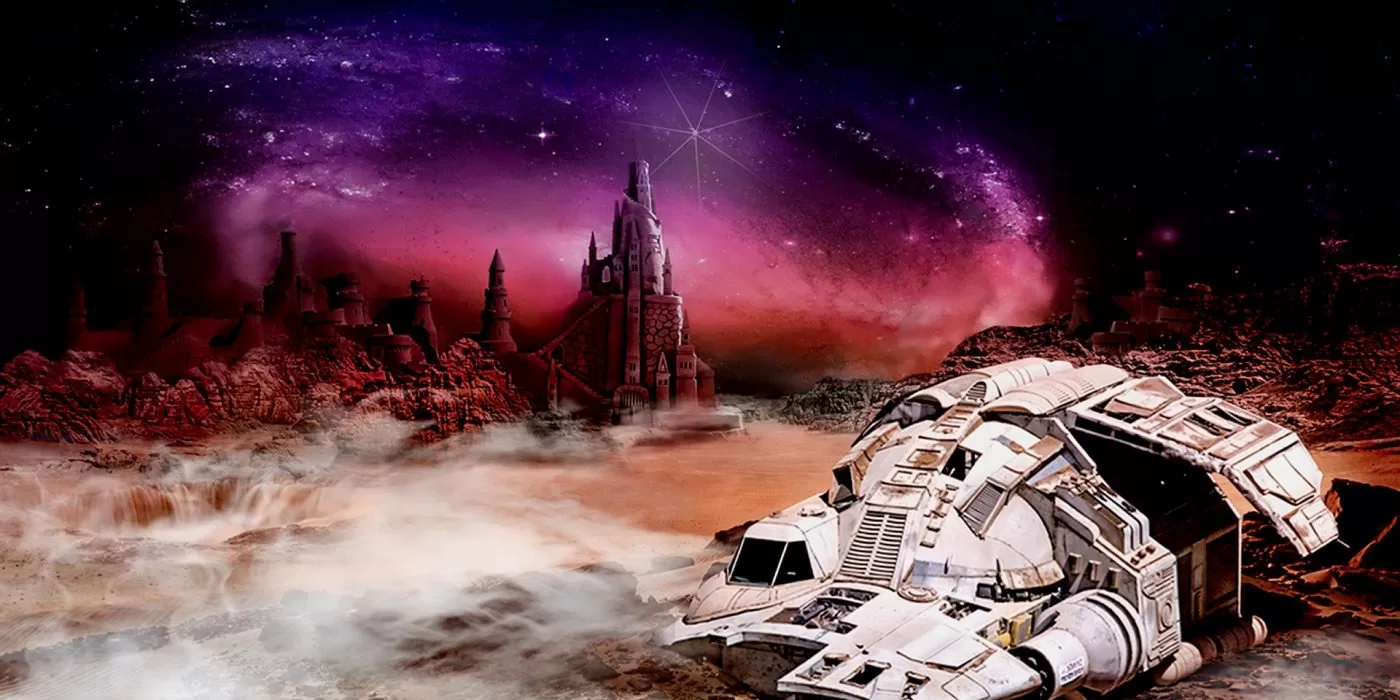

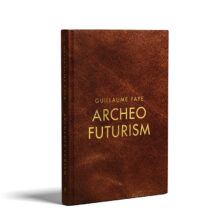

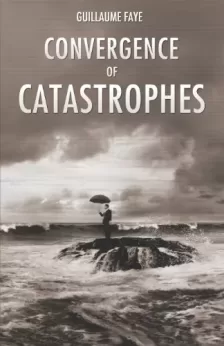
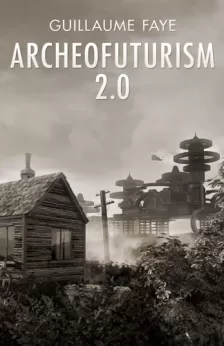
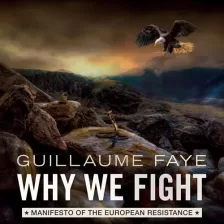
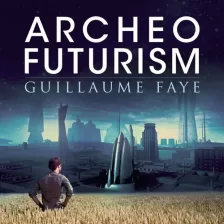






[…] Archeofuturism (Link) (Link) (Link) […]